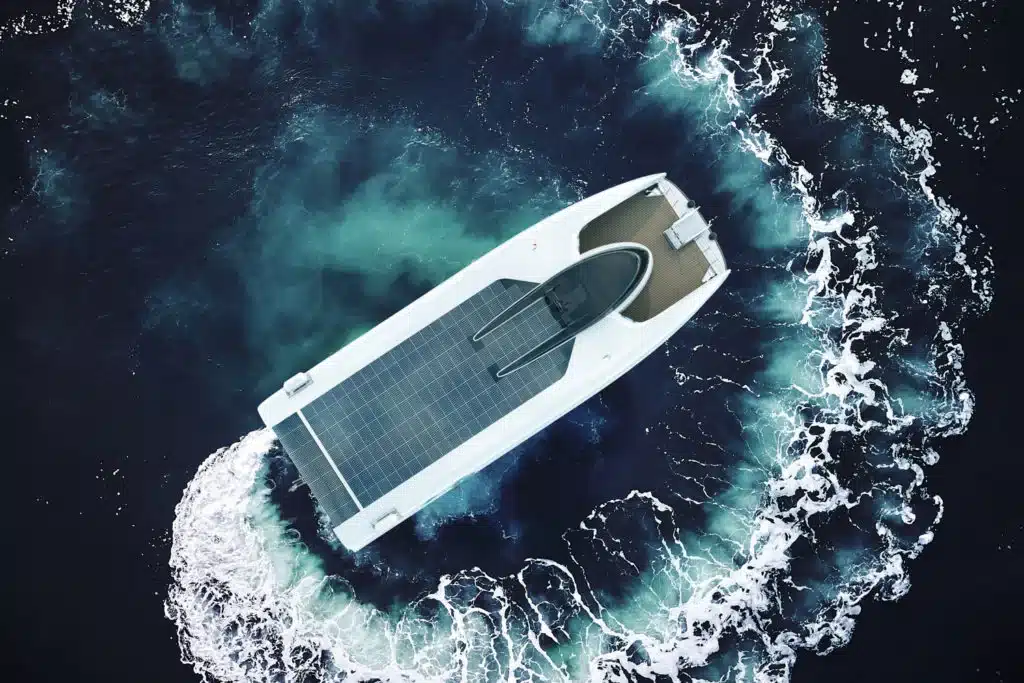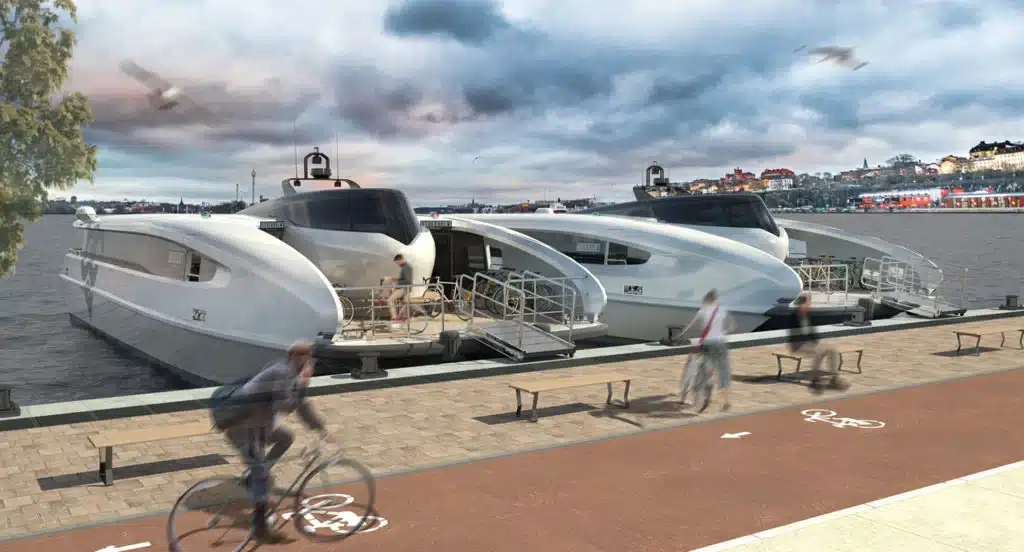Echandia, based in Stockholm, has signed a deal to deliver the world's first zero-emission high-speed catamaran. It is called Beluga24, has an integrated battery and a hydrogen-based fuel cell system and will be delivered in autumn 2022.
Beluga24, designed by Studio Sculli, Italy and Teknicraft in New Zealand, will be built in carbon fiber and used for commercial traffic (even at high speed) in Stockholm, Sweden.
How the zero-emission high-speed catamaran works
This unique passenger ferry is based on proven aerodynamic technology. A foil positioned in the center of the vessel lifts the vessel half out of the water at high speed, thus significantly reducing water resistance. This means less energy consumption and less foam trail. Green City Ferries, which will build the vessel, expects that consumption will be around 30 kWh per nautical mile at 30 knots: almost half of what a conventional catamaran consumes.

Power for Beluga24 (which can comfortably accommodate up to 150 passengers, with space for 30 bicycles as well) comes from Japanese LTO batteries and/or Canadian fuel cells. This ensures the catamaran has high performance and short charging times. Echandia says the high-speed craft also requires less hydrogen, as well as less weight (also thanks to a lighter battery).
“Sweden has lagged behind internationally when it comes to electrifying maritime transport. But now the pace is increasing here too,” he says Magnus Eriksson, CEO of Echandia.
We are proud to be part of this project which not only contributes to reducing emissions from Stockholm's local shipping, but is also the first in the world with a high-speed catamaran to zero emissions. The ferry will be equipped with an integrated system with batteries and hydrogen, which is much more energy efficient than solutions with separate systems.
Magnus Eriksson, CEO of Echandia

According to Echandia, Stockholm's ships account for around 5% of energy consumption but approximately 50% of CO2 emissions per year.
The goal (here and elsewhere, in other countries) is to move to high-speed, emissions-free shipping in the world's cities.


